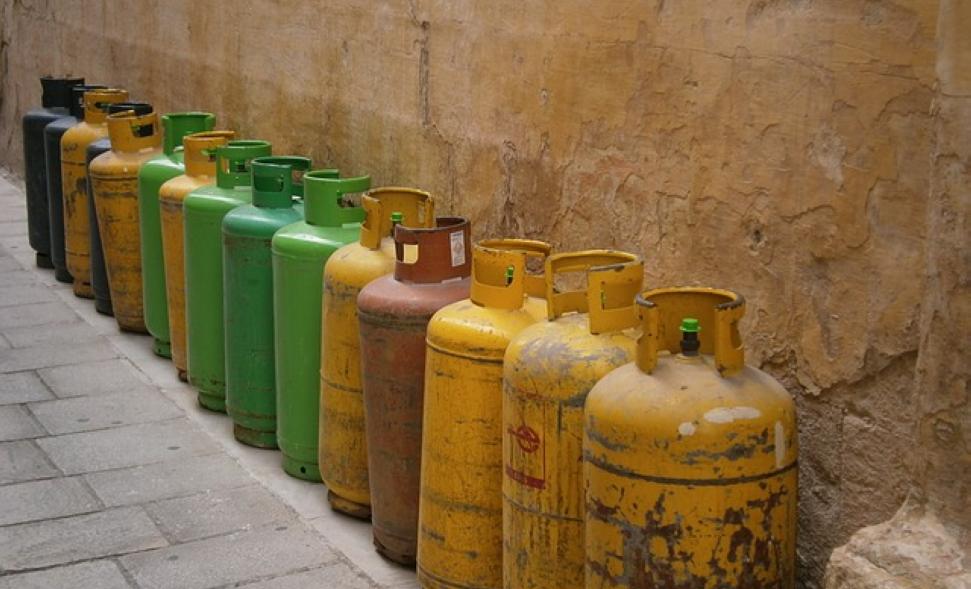
Alex Lagakos, Vice-President of the Greek Energy Forum, and Daria Nochevnik, Deputy Head of the Forum’s Brussels branch, spoke to Interfax Natural Gas Daily about the policies and market reforms that are set to transform the Greek gas industry. The Greek Energy Forum is an international energy think tank specialising in Greece, southeast Europe and the East Mediterranean.
Interfax Natural Gas Daily: What do you consider to be the most important policy changes that will encourage the creation of a more competitive gas market in Greece?
Alex Lagakos and Daria Nochevnik: There are some important reforms that have been implemented in the gas sector in Greece during the last few years. Unbundling between distribution and supply will become fully effective in January 2017, paving the way for a competitive retail gas market.
On top of that, all customers in Greece, including residential, will have become ’eligible‘ to freely choose their supplier of preference by 1 January 2018. This decision has already been voted on by the Greek parliament and signed by the government. The start was made in October 2015, when industrial consumers with an annual consumption of at least 2.2 GWh became [...] eligible.
Today, DEPA – the public gas company in Greece – is running a ‘gas release’ programme through regular auctions that will eventually give access to 10% of its imported gas quantities to third parties. The programme has been running for more than two years, and despite the current strong interest by participants we think that there is still enough room for improvement in the contract terms.
As an indication only, we mention the need to increase offered flexibility [in the contracts] to fully match the flexibility that DEPA enjoys through its long-term contracts; to increase [the] available quantities [of gas] beyond the recently announced gradual expansion of the 10% threshold to 20% by 2019; and to expand the range of available contract durations. Such amendments will favour the growth of independent providers/traders and hence nourish market competition.
Other policy measures should also target the establishment of a transparent framework for trading LNG in tanks. This would allow smaller players that currently lack the physical or financial capacity to import an LNG cargo on their own to gain access to LNG by purchasing smaller tranches from existing importers such as DEPA and M&M Gas.
INGD: How does this fit into Greece’s long-term aims for gas in its energy mix?
AL & DN: Beyond the aforementioned policy changes and suggestions, there is also the need for a long-term policy vision and a regulatory framework that would focus on reducing carbon dioxide emissions, enhancing the role of gas and renewables in the future energy mix and capitalising on Greece’s strategic location and strong EU support for the development of a gas hub in the region.
To that end, the establishment of an energy exchange in northern Greece is important and will significantly advance the efforts of Greece to become [...] the gas hub for the wider region. This geographical region is placed at the crossroads of the major existing and prospective gas infrastructure projects – including the Sidirokastro interconnector, the Kipoi interconnector, the Trans-Adriatic Pipeline, the Interconnector Greece-Bulgaria, and potentially the Alexandroupolis Independent Natural Gas System and Kavala underground storage facility.
It is very positive that Greece has been the first country in the region to obtain a functioning virtual nominations point [in its market], but it still needs to keep on working towards developing it into a virtual trading point (VTP) through an energy exchange institution.
Indeed, a VTP in the country will additionally solve the issue of gas swaps between the Revithoussa [LNG terminal] and Sidirokastro. Currently, in order to reroute gas volumes arriving at the Bulgarian-Greek border back to Bulgaria, two capacity charges have to be paid: these volumes must first be imported to Greece, where they are subject to an entry capacity charge, and then re-exported back to Bulgaria, where they are subject to a virtual reverse capacity charge.
Once virtual trading is launched, reverse flows at Sidirokastro will become much simpler from an operational perspective. However, the positive thing is that reverse gas flows at Sidirokastro are already a reality, as the success of the first firm capacity auction, which was completed in early December 2016, has evidently proven.
INGD: What expansions to infrastructure will encourage wider adoption of gas in Greece?
AL & DN: There is ongoing work being done on the expansion of the national gas network and there are opportunities for transporting gas to remote areas not yet connected to the grid. There is also the expansion of the network of gas filling stations for road vehicles, as well as joint infrastructure planning with other countries in the region for LNG bunkering in Mediterranean EU countries. Again, the enabler for such applications should be the design of a domestic market framework, which the government should push for as soon as possible.
Overall, we are very happy not only with the country’s potential but also with the progress that Greece has achieved during the last few years with regards to liberalising its market. Nevertheless, we still see substantial room for improvement that can drive progress and growth in the national energy market even faster.
The opinions expressed in the article are personal and do not reflect the views of the entire forum or the companies that currently employ the authors.




